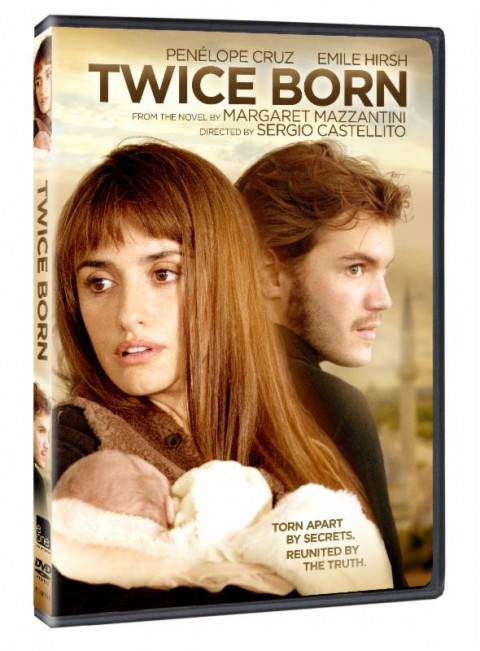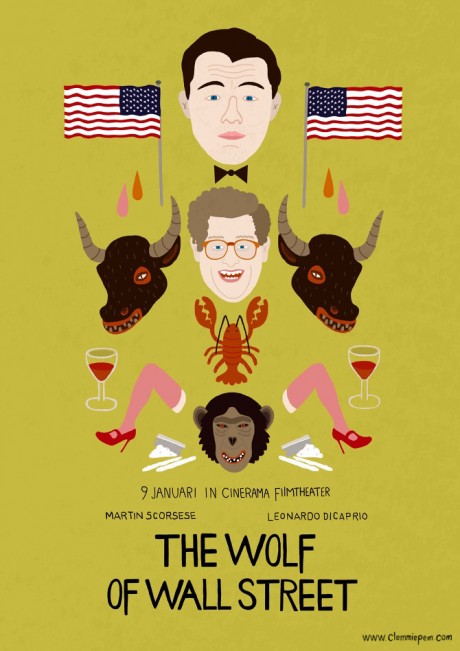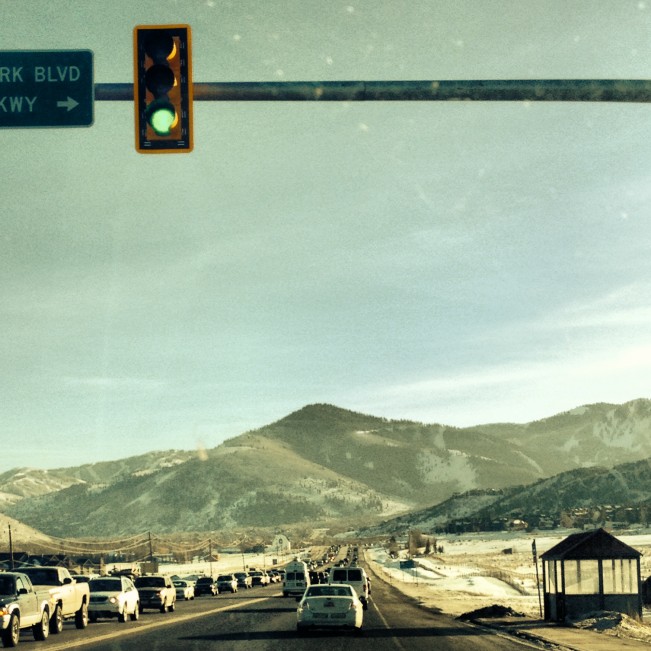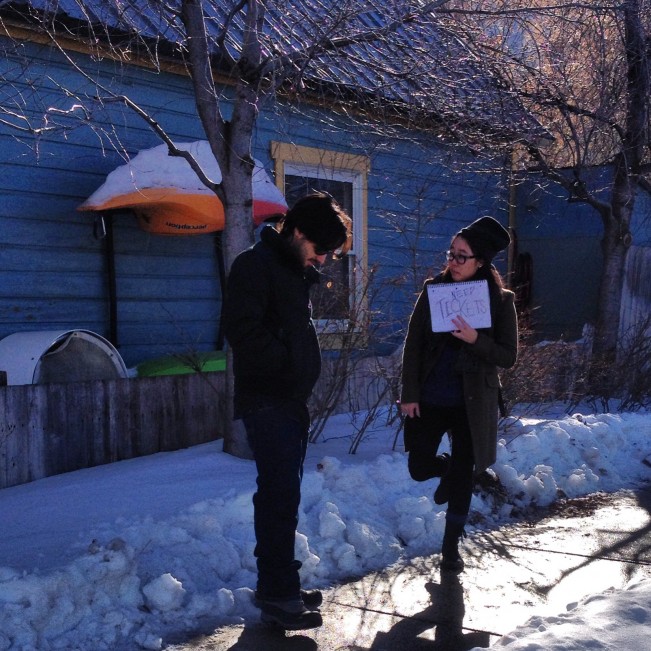Movie City Indie Archive for January, 2014
David Simon Tells Bill Moyers American’s A “Horror Show” (26’46”)
Will Emile Hirsh Be (Sic) Over Box Art That Never Knew Him?
Newly-Minted Oscar Trivia Question Answer “Alone Yet Not Alone,” Performed By Joni Eareckson Tada (3’44”)
Dutch WOLF OF WALL STREET indie Poster
[By Clemens den Exter.] Click twice for largest size.
Picturing Sundance 2014: 21 Images

Sleep is good. Seeing movies is better. Writing solid, thoughtful reviews instead of instant reactions longer than a well-wrought tweet: even better. Those will come later, but for the day, a few quick descriptions and some more glimpses of 10 days at Sundance. (All images © 2014 Ray Pride.)
They don’t want you to park at the Library.
Abandon Hope, All Ye…
At Riverhorse, Filmmaker-Journalist reception.
Picturing Sundance 2014: 7 Looks

Up the mountain from SLC and Salt Lake City toward Park City and Sundance…
Where the traffic lineup begins miles from home.
On Main Street, one older building is now a hole in the ground, others are gutted to be rebuilt for new use, but the 2010 Banksy painting on the side of Java Cow remains, despite protective glass being shattered in the past couple of weeks.
Sundance Director John Cooper meets up with Taika Waititi at the Foreign Filmmakers’ lunch.
And someone is always needing your ticket.
Read the full article »
Sundance 2014 Review: Locke

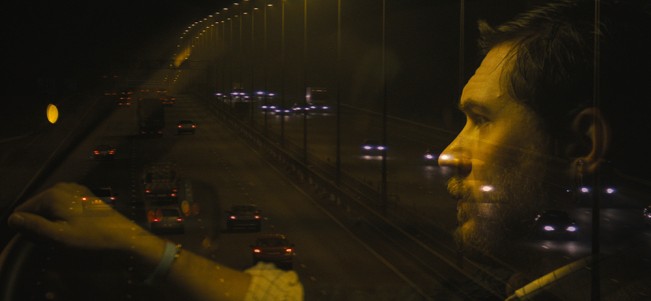 A man is on the run: from his life, toward his life, a mortal Locke. Writer-director Steven Knight’s second feature, demarcates one man’s pungent unwinding of notions of himself across a couple of dark hours. Coursing south on the M1 artery from Birmingham toward London, putting family and a multi-decamillion-pound concrete pour in his rearview mirror, Ivan Locke talks, Locke listens. Ivan Locke is a man of concrete who, this one day, has cracked. Tom Hardy is in the driver’s seat, although the actors who play his wife, his boys, his boss, his conspirators, the lover he knew for only a night—Olivia Colman, Ruth Wilson, Andrew Scott, Tom Holland, Bill Milner—provide urgent support. There’s fury under the calm of Hardy’s Locke. He’s a one-man Long Good Friday. (That Bob Hoskins-starring gangster classic culminates with one of the great long takes in the back seat of a car of all time.) Locke soothes down the line, you can see how he would be good at manhandling huge construction projects as he negotiates the terms of his self-orchestrated maelstrom of meltdown. He assures about traffic, about passage. “I’m in the car now, it’ll be no more than an hour-and-a-half if there’s no traffic.” (It can’t be: the film is only 85 minutes long.) As the voices punch at him in succession, perspective blurs and light sources eddy red, white, blue, yellow, guttering like phosphorescent tapers, streaks and flurries of headlamps, tail lights, red and white light elongating from opposite directions. It’s light as inchoate emotion, light as insensate commentary, a slow and persistent mood. Resemblances to the light show of 2001: A Space Odyssey, Michael Chapman’s Taxi Driver Manhattan, and a panoply of visual notions from experimental filmmakers like Jordan Belson could be amply catalogued. (Antiquated Panavision lenses add to the bloom and anamorphic splay of light sources in every shot.)
A man is on the run: from his life, toward his life, a mortal Locke. Writer-director Steven Knight’s second feature, demarcates one man’s pungent unwinding of notions of himself across a couple of dark hours. Coursing south on the M1 artery from Birmingham toward London, putting family and a multi-decamillion-pound concrete pour in his rearview mirror, Ivan Locke talks, Locke listens. Ivan Locke is a man of concrete who, this one day, has cracked. Tom Hardy is in the driver’s seat, although the actors who play his wife, his boys, his boss, his conspirators, the lover he knew for only a night—Olivia Colman, Ruth Wilson, Andrew Scott, Tom Holland, Bill Milner—provide urgent support. There’s fury under the calm of Hardy’s Locke. He’s a one-man Long Good Friday. (That Bob Hoskins-starring gangster classic culminates with one of the great long takes in the back seat of a car of all time.) Locke soothes down the line, you can see how he would be good at manhandling huge construction projects as he negotiates the terms of his self-orchestrated maelstrom of meltdown. He assures about traffic, about passage. “I’m in the car now, it’ll be no more than an hour-and-a-half if there’s no traffic.” (It can’t be: the film is only 85 minutes long.) As the voices punch at him in succession, perspective blurs and light sources eddy red, white, blue, yellow, guttering like phosphorescent tapers, streaks and flurries of headlamps, tail lights, red and white light elongating from opposite directions. It’s light as inchoate emotion, light as insensate commentary, a slow and persistent mood. Resemblances to the light show of 2001: A Space Odyssey, Michael Chapman’s Taxi Driver Manhattan, and a panoply of visual notions from experimental filmmakers like Jordan Belson could be amply catalogued. (Antiquated Panavision lenses add to the bloom and anamorphic splay of light sources in every shot.)
Sundance 2014 Review: Stranger By The Lake

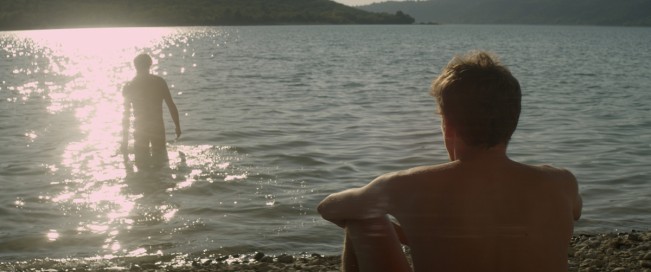 Classically constructed, as rigid in its construction of suspense as any recent thriller, Alain Guiraudie’s Stranger by the Lake (L’inconnu du lac), is a masterful work, uncluttered yet lush, formally regimented, yet always surprising. (Call it full-frontal Hitchcock.) It also takes its location, its construction of sexuality, as commonplace. Guiraudie’s movie is assuredly part and parcel of queer cinema, but also of the cinema of the quotidian, of the everyday.
Classically constructed, as rigid in its construction of suspense as any recent thriller, Alain Guiraudie’s Stranger by the Lake (L’inconnu du lac), is a masterful work, uncluttered yet lush, formally regimented, yet always surprising. (Call it full-frontal Hitchcock.) It also takes its location, its construction of sexuality, as commonplace. Guiraudie’s movie is assuredly part and parcel of queer cinema, but also of the cinema of the quotidian, of the everyday.
At a remote lakeside somewhere in France—which Guiraudie says is in the provinces of the South, where he grew up—men come each sunny summer day to sun, to cruise, to meet, the converse or to exchange gestures, and in one case, to murder. The scene is rustic, verdant, removed from the outside world. There is the sun and the sea, men in states of undress and arousal, the caress of wind on the water, the wind through the trees from rustle to rush, the gentle murmurs of those who move from shore to forest to realize their acquaintance. We could be near a city, far from care, or simply in an idealized utopia, at least until a man is drowned. (“My rural childhood surroundings undoubtedly influenced my character,” Guiraudie says.) The surroundings are the most accomplished of sinister landscaping since Martha Marcy May Marlene. He uses images of the water similarly: a shadow falls across its surface and dark green serrates atop lighter green, a thrilling geometric diagonal that represents its psychological moment perfectly.
Read the full article »
WOLF OF WALL STREET, Stripped Of SFX (2’58”)
The Wolf of Wall Street VFX Highlights from Brainstorm Digital on Vimeo.





